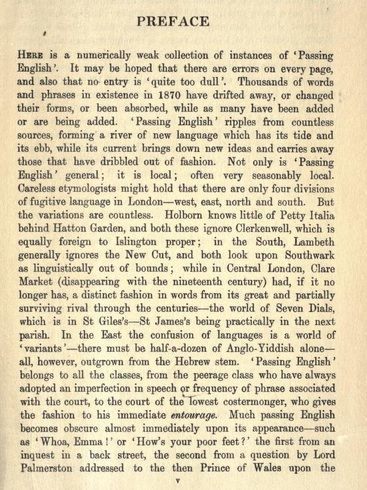

James Redding Ware (1832-1909) was an author, journalist and lexicographer. Experts leave Wares Victorian Dictionary Of Slang And Phrase Author J Redding Ware Published On May 2013J Redding Ware5 their bids under the posted order, waiting for a client to settle on which writer, among those who left their bids, they Wares Victorian Dictionary Of Slang And Phrase Author J Redding Ware Published. I was doing a little googling on this particular topic and came across a website, called the Australian slang dictionary. Reproduced in facsimile with an introduction by John Simpson, Chief Editor of the Oxford English Dictionary, this dictionary provides a fascinating and highly entertaining witness to the colourful history of unofficial English. A bid is a fee writers offer to clients for each particular order. We think of the Victorians as buttoned up and staid, but there were a few areas in which they really let their hair down, so to speak. It proves they really did have a sense of humor after all. In doing so, he extended the lifespan of words like air-hole, lally-gagging, and. 35 Slang Terms from the Victorian Era That Are Real Humdingers. Redding Ware set out to record words and turns of phrase from all walks of life, from the curses in common use by sailors to the rhyming slang of the street and the jargon of the theater dandies. While it presents numerous expressions now obsolete, and some terms and definitions in the idiom of the era which would not now be considered acceptable, it also uncovers the origins and meaning of many slang words still in use today. Acutely aware of the changes affecting English at the end of the Victorian era, writer and journalist J.

Ware's dictionary, first published in 1909, is a treasure trove of the everyday language of the nineteenth century, showing the influence of American English on Victorian slang as well as historical and innovative words and phrases. To arrive at a working definition of slang the first edition of the Bloomsbury Dictionary of Contemporary Slang approached the phenomenon from two slightly. Where else would you turn to learn the meaning of 'Bow-wow mutton', 'Air-hole', 'Lally-gagging' and 'Damper'? Acutely aware of the changes in English usage at the close of the Victorian era, the lexicographer James Redding Ware (1832-1909) decided to record for posterity new and archaic words and phrases from all walks of life, from the curses in common use by sailors and the rhyming slang of the street to the jargon of the theatre dandies.


 0 kommentar(er)
0 kommentar(er)
